Retired Ambassador Chas Freeman, Nixon’s translator during his 1972 trip to China, says U.S. policy to China remains a desire to hold on to primacy globally and regionally. Biden’s approach so far is not much different than the aggressive posture of Trump. This interview was originally conducted on March 12, 2021.
Paul Jay
Hi, welcome to theAnalysis.news. I’m Paul Jay. Please don’t forget there’s a donate button at the top of the web page.
No issue is more central to U.S. foreign policy than the rise of China as a major global economic power. The rhetoric from the Trump administration, from the new foreign policy team around Biden, and from the majority of foreign policy pundits in D.C. depicts China as a threat and adversary and aggressive power. The language is much the same as during the Cold War with the Soviet Union. It’s mostly China that is used to justify a massive growth in the U.S. military budget. Yet it’s clear that without cooperation with China on climate policy, there’s little chance we humans will survive the crisis.
So what drives U.S. policy towards China? And why is it considered more threatening than simply a large economic competitor? Now joining us is Ambassador Chas Freeman. He’s a visiting scholar at Brown University’s Watson Institute for International Studies. He was Assistant Secretary of Defense for International Security Affairs from 1993 to 1994, earning the highest public service awards of the Department of Defense for designing a NATO-centered post-Cold War European security system and reestablishing defense and military relations with China. He served as U.S. ambassador to Saudi Arabia during Operation Desert Shield and Desert Storm 89 to 92.
He was Principal Deputy Assistant Secretary of State for African affairs from 86 to 89 during the historic U.S. mediation of the Namibian independence from South Africa and Cuban troop withdrawal from Angola. Charles was deputy chief of mission and charge d’affaires in the American embassies in both Bangkok 84 to 86 and Beijing from 81 to 84. He was director for current Chinese affairs at the U.S. Department of State from 79 to 81. He was the principal American interpreter during President Nixon’s path-breaking visit to China in 72. In addition to his Middle Eastern, African and East Asian, and European diplomatic experience he served in India from 66 to 68. In 2009, he was asked to return to government to chair the U.S. National Intelligence Council. Following a month-long campaign of public vilification by right-wing elements of the American Israel lobby, he announced it would be impossible for him to succeed at that job and withdrew his acceptance of it. Thanks very much for joining us Chas.
Chas Freeman
Pleasure to be with you.
Paul Jay
So you are one of the most experienced American diplomats when it comes to China and one of the, I guess, foremost experts on U.S.-China relations. Why is China considered an existential threat? Now, when I try to research this topic. I mostly find a lot of language and rhetoric about China’s denial of human rights and so on, and I’m sure most people who follow foreign policy don’t take all that very seriously.
The United States complains about human rights when they’re countries that are considered adversaries and when they’re allies, the United States, doesn’t care that much about human rights. So what’s really driving this U.S. approach to China?
Chas Freeman
In a word, I think a desire to hold on to primacy globally and regionally. In World War two, Japan expelled the European imperialist powers from East Asia and the United States by the way, from the Philippines. We defeated Japan. We filled the vacuum that Japan had created. Ever since then. It was well over seven decades ago.
We have been the hegemon in East Asia and the Pacific. We are a resident great power that is greater than all the others. Now our status is being challenged by the return of China to wealth and power, the movement of our partners, whether they are formal allies or simply friends, to accommodate the rise of China in their own interest. So this is the first factor.
I think the second factor is the ideological one that you mentioned. For some reason, many Americans appear to believe that until the entire world is converted to our version of ideology, human rights, democracy, whatever you want to call it, we are threatened.
So that is the existential threat. That is the difference of the Chinese from us and their unwillingness apparently to cease being Chinese. So we have a problem. In military terms, which is the way the United States thinks these days. We have a very practical issue. We can no longer penetrate China’s defenses at will, and the last administration, the Trump administration, was pretty clear that they wanted regime change in China and that maximum pressure on China would help to achieve this.
I think that’s nonsense, but anyway, it is a viewpoint. So we have a problem. Psychologically we’re being displaced from our premier position. Diplomatically our allies and partners are realigning themselves between us and China, and militarily, we’re no longer dominant. We have a final issue, which is that in 1950 two days after Kim Il-sung invaded South Korea in an effort to reunite Koreans under his rule, we interpreted that, of course, at the time as a coordinated effort within the so-called Sino-Soviet bloc to extend its reach beyond the post-World War Two armistice lines, and we reacted by putting the Seventh Fleet into the Taiwan Strait in order to prevent either Chiang Kai-shek, who had fled to Taiwan after his defeat on the mainland or Mao Zedong, who was planning to invade Taiwan from moving militarily and thus widening the conflict.
That intervention suspended but did not end the Chinese civil war, which has gone through various phases. At the moment, nobody is shooting at anybody but the probability that they will resume shooting at each other. Now, a democratic regime in Taiwan replacing Chiang Kai-shek’s government would still heir his legacy. There is a good chance that they will begin shooting at each other again, and if they do, there are grave doubts about the ability of the United States to defend Taiwan. Many people wonder why we’re trying to do that anyway, except for ideological reasons that I’ve mentioned.
Paul Jay
Well, let’s break it down into these different compartments. On the economic side, there’s nothing the United States is going to be able to do to weaken China’s growing dominance in Asia and its global reach. I mean, countries in Latin America, several now have China as a more important trading partner than the United States and certainly in Africa, but this kind of economic competition is not an existential threat to the United States. And there’s nothing the United States can really do about it. Europe’s economy is around the same size as China and Europe compete with the United States economically. Why is China more of a threat economically than Europe?
Chas Freeman
Well, the United States has been the world’s largest economy since about 1870, and losing that status is painful. Second China grew by opening itself to the world, including to American corporations and in the United States, unlike in Germany, for example, the management committees that make decisions about how to respond to competition, economic competition on price or quality have no worker representation and tend to treat the labor force as a simple cost input rather than as human beings to whom loyalty is owed.
And so the typical response of American corporations to rising competition from abroad was to outsource production, to move where labor costs were low and where labor unions were bad and China fit the bill perfectly. That was the beginning. China, of course, has developed a great deal since those days. By some measures, it’s about a third larger economically than the United States by others. If you just take the dollar exchange rate, it’s still maybe three-fourths, only three-fourths as large, but we’re being outstripped.
And this is ongoing. So there are when you compete with another country, there are three basic ways you can do that. One is by what I call rivalry, where you basically try to improve yourself and outdo the other. Another is by adversarial antagonism, where you try to hamstring your competitive partner, the other country, and the final stage of this sort of evolution is enmity, where you try to destroy the other. United States has moved from a position of neutrality on competition into rivalry, and now it is an adversarial antagonism with China. We have been trying to hamstring it with tariffs, with technology bans, with efforts to halt its sale of its products and services in third countries and markets, and all of this is not going to work, but it is very satisfying to American ultranationalists.
Paul Jay
Yeah, that seems to be more about domestic politics than it has anything to do with real world effectiveness. I mean, first of all, American corporations can’t risk getting shut out of the Chinese market and both labor market, but even more so being able to sell products. There are lots of American companies making more money in China than they are in the United States.
Chas Freeman
It’s now the world’s largest consumer market. Having overtaken us. It is the largest trading partner of three-fourths of the world’s economies. This is a behemoth and it is a successful one. It is not the Soviet Union, which George Kennan many years ago in the 1940s predicted would eventually fall of its own defects if it were walled off, and fourty some years later, he turned out to be right. By then, of course, we had forgotten what containment was all about and we were startled when it worked.
Soviet Union dropped out of the competition. Defaulted basically on the Cold War and created a new world in which the United States appeared to be universally dominant. China is the threat to that universal dominance.
Paul Jay
But a threat in the sense that it gives countries a choice between the U.S. or China in terms of who to deal with or a threat that China will become the new dominant hegemon, which is what the right-wing nationalists suggest.
Chas Freeman
I don’t think China aspires to take on the burdens of the United States as the global policeman or the role of the United States as the lawgiver, which we were for many, many decades after World War Two. Of course, now we’ve decided it’s better to break the law or at least behave as though it didn’t exist than to follow it, but China, I don’t think, has any of these aspirations. That doesn’t stop people in the United States from fearing displacement from, again, our primacy, and that’s what’s going on here.
Paul Jay
You have people like Richard Haass is one of the big television pundits and DC pundits on foreign policy saying that the United States should end the ambiguity over American commitment to Taiwan. He says right now it’s ambiguous whether the United States would really militarily intervene if there was a military clash with China and Taiwan, although Taiwan’s part of China, but at any rate. He wants it made clear that the United States will intervene, but it seems crazy. I interviewed Larry Wilkerson, who says every time there are war games about what happens with America and China conflict, it ends up in a nuclear war. I mean, it seems to me it’s a big bluff anyway, that the United States would really risk that kind of conflict with China over Taiwan.
Chas Freeman
Well, Richard Haass wants to give a blank check to Taiwan to push the envelope and perhaps declare independence and cause a war and be able to count on the United States like the U.S. cavalry in the old movies to come to its rescue. I think that’s enormously foolish. All it does is empower hotheads in Taiwan to provoke the mainland, and it makes it clear to the mainland that the United States is an enemy of China’s sovereignty and territorial integrity.
Creative ambiguity, strategic ambiguity is a far better position. It deters China, which assumes that it must plan if it does attack Taiwan for a U.S. military response, it can’t cut it out, but it doesn’t say to China, we’re implacably against your reunification with Taiwan and it doesn’t say we regard you as a suitable target for nuclear weapons. So I’d say there is an old adage, if it ain’t broke, don’t fix it and it should apply to this.
Paul Jay
And why wouldn’t that also apply to the Chinese? Why would the Chinese seek any such fundamental change in the relationship with Taiwan? What’s wrong with the way it’s going for China?
Chas Freeman
The way that you have to review a bit of history there? For twenty-three years, the United States successfully defended the proposition that the government of China was in Taipei, not in Beijing, that there could be no legitimate intercourse with the government, bogus regime in Beijing, pardon me, and that Taipei was entitled to represent China on the United Nations Security Council, despite being only a small island province of China. So there’s a lot of history here, and the civil war aspect is the key one.
Two revolutions occurred in China in the 20th century, one in 1911, Sun Yat-sen’s Republic of China came out of that, and one in 1949 when the People’s Republic of China was proclaimed by Mao Zedong. Both had the same objectives to end foreign spheres of influence on Chinese territory, to bring warlords, meaning regional forces, under the discipline of the central government. To restore the lost dignity that China had suffered from imperialist invasion, most egregiously from Japan, where some 35 million Chinese are said to have died in the 14 years of the Japanese rampage through China.
Taiwan is a daily reminder of the failure of both revolutions, and so this is an emotional issue. On the other hand, China has, in my view, absolutely no intention of trying to reenact Saving Private Ryan on the mudflats of western Taiwan. The Chinese preference is to win without fighting, and to that end, they will grow and they will provoke and they will demonstrate their military superiority to the point where an intelligent politician in Taiwan will say, well, gee, maybe we ought to sit down and talk about this.
Which Taiwan has been refusing to do, except in order to promote independence. So it’s entirely possible that the two sides can work out a negotiated mutual accommodation, part of doing that, since no one negotiates anything anywhere, unless either they’re going to gain something from the negotiation or they’re going to lose something by not negotiating. China keeps the military pressure up. At the same time, it has a welcoming hand for Taiwan businesses, Taiwan tourists, students from Taiwan and its universities, and so forth.
This is not East and West Germany. It is a very different case, and unfortunately, history has not been forgotten by anybody but Americans. Actually, amnesia is our most enduring national characteristic.
Paul Jay
Yeah, that’s Gore Vidal’s line I think, and Studs Terkel, too. I mean, I think it’s true about all foreign policy, but particularly this issue that it plays into everybody’s domestic politics. For China, it’s great to keep making noise about Taiwan, to play a nationalist card in China. In Taiwan, you keep playing an independence card. In the U.S. it makes as if the United States has got some interest in human rights and whatever when it’s really about commercial issues like intellectual property rights. But isn’t the objective reality of this is that the stronger that China gets economically in Asia, more and more Taiwan is drawn into the Chinese economy.
And, if I understand it correctly, they’re very much already drawn into the Chinese economy. So, I just don’t see why this is going to change. I think everybody can make a lot of noise. But in the final analysis, Taiwan has to play nice economically with China.
Chas Freeman
I think it’s important to note that Taiwan has evolved politically and it is a robust democracy and has a very high standard of the rule of law. In other words, it’s admirable politically. It’s also admirable economically, as we have learned through the dominance of Taiwan Semiconductor Corporation over the world’s supply of microchips. It is the most advanced in the world in that area. So, yes, there’s a lot of reason to favor the status quo. On the other hand, as you said, domestic politics intervenes.
This is an identity crisis. This is an issue of national identity. Taiwanese, who are the descendants of Chinese who arrived in Taiwan before the fall of the mainland to the Communists, 1949, beginning probably in the 17th century have a distinct national identity now, and they want to remain free from supervision or interference by people from other parts of China. Actually went through that experience once when Chiang Kai-shek and his forces arrived and were very brutal to the local Chinese inhabitants. On the mainland, giving up the dream of recovering Taiwan would be fatal and would probably cause the overthrow of any leader who was presumed to have done that.
Finally, of course, if there were a military attempt to reunify China and it failed, the regime on the mainland would fall and we might get something far worse. In a way, it’s fortunate that we don’t have a democracy to deal with on the mainland because Chinese nationalism would then have an opportunity to find full expression in much less prudent policies than the current communist government provides.
Paul Jay
Why are people like Richard Haass, who’s not, at least on the face of it, part of the extreme right-nationalist faction, Trumpist, why are people like Haas trying to inflame the situation over Taiwan?
Chas Freeman
Well, they equate American military power with American prestige, influence, and self-regard, and if we can’t force the Chinese to back down on Taiwan, well, what does that say about us? So this is a question of national honor, plus national pride. Americans actually do take the pledging of our word more seriously, not always, of course, as Mr. Trump demonstrated, but we do tend to take the pledging of our word rather seriously, and there is a sense of obligation to the people of Taiwan.
I find this rather bizarre, but I’ll give you an anecdote which explains it in my own experience. When I was serving in my first tour in India, one night driving home from dinner at some Brahmin friend’s house, I spotted what looked like two white spots in the ditch alongside the road along with a car. I got out and it was an Australian jockey, a small, slight man who one of his arms had been nearly severed by a sideswipe with an Indian bus.
I picked him up. I put him in my car. I drove him to the hospital. That was not a nice experience for him or me. Eventually, I helped amputate his arm with a pair of scissors because there was no substance to it. He lived, and ever after he followed me around thinking that I had some obligation to protect him and keep him safe. I was happy to have done so, but I did not feel any obligation. I think it’s strange that when you offer to protect someone, somehow they can turn that around and put you on the back foot, and that’s very much what the Taiwan situation is.
Paul Jay
But isn’t it also the way Obama talked about the Asian pivot. The idea of this attempt to encircle China? I mean, isn’t Taiwan an important piece of that if you take this kind of American outlook that as you said right from the beginning if you want to keep American primacy, Taiwan’s a big piece of that strategy.
Chas Freeman
That was a personal project of one Kurt Campbell, who is now the senior Asia fellow at the National Security Council, called the Asian czar for some reason. So I assume that sort of thinking is still very much in play, but the problem is, as I think you said at the outset, there are objective trends. China’s economy is about to become larger than that of the United States by any measure. All of the war games we play show that China would give us a shellacking if we came to the aid of Taiwan.
The Chinese are now able to defend their borders and their near seas and keep them free of an attack by the United States, which they fear, rightly or wrongly. And technologically China is now in the lead in quite a number of fields. One-fourth of the world’s STEM workers are Chinese, and that proportion is increasing. As we speak, there are over two million new STEM workers, meaning scientists, technologists, engineers, and mathematicians graduating from Chinese universities every year.
If you go to an artificial intelligence lab at MIT or Stanford or some other prestigious university in North America, you’ll find that 60 percent of those working there are foreign, foreign, not native, and of those, about half are Chinese. So we are not dealing with a country that is falling behind, quite the opposite. The crucial question for U.S. foreign policy ought to be, how do you leverage China’s prosperity and advance to our advantage? What’s in it for us?
There’s nothing in it for us if we’re or pretending that we can reenact King Cnut’s unfortunate adventure on the beach. The tide will come in, whatever we say or do.
Paul Jay
All right. Let me just add one quick thing here. I talked to King Cnut to a bunch of people, young and old, nobody’s ever heard the story. I couldn’t believe it. So for anyone that hasn’t heard it, this is a king who thinks he can stop the tide from coming in and he sits in a chair or something, and, of course, the tide comes in. Go ahead.
Chas Freeman
Yeah, it’s England and the tides are 17 feet. So it’s quite an impressive failure.
Paul Jay
So the bottom line here is there is no way to stop this growth of China. Militarily there’s no evidence China is any kind of existential threat to the United States. It’s militarily positioned primarily as defensive, not offensive. Unless I’m wrong, correct me. It really comes down to this kind of nationalist psychological factor, which can be very important.
Is the United States willing to play in the long run, what looks like a somewhat second fiddle and at least certainly in Asia and maybe even in some other parts of the world? Would you say there’s a way that this could turn out to be a constructive rivalry, and if it isn’t constructive rivalry, as I said in the beginning, given the threat of climate crisis, this isn’t just some abstraction. How are we going to do in one hundred years, two hundred years?
China is going to get so strong. The planet’s going to be a complete mess in forty, fifty years if there isn’t some collaboration on this. So there’s kind of a different imperative here than would be in terms of normal geopolitics.
Chas Freeman
I don’t think you have to invoke climate change, although it is very apposite to argue that setting on a course which could conceivably end in a nuclear war is not a good idea. We are in China’s face. They are not in ours. Our ships are patrolling off Shanghai. Theirs are not off San Diego or Puget Sound yet. The problem with what we’re doing is that if you go abroad to arouse dragons, they may follow you home and in the future, we may find that we are subjected to the kind of military pressure we are now putting on China.
We could even see a reenactment of something like the Cuban missile crisis as the Chinese determined that in order to deter the United States, they need to get up close to us with missiles. Anyway, I think the issue of climate change, along with nuclear nonproliferation, the avoidance of another world war or transpacific war, and other issues like working out common rules for international trade and investment that benefit everybody and that share the wealth around the globe. All these things can’t be done without U.S.–China cooperation. So we ought to be getting on with that, not wasting our time and our money preparing for a war neither can win.
Paul Jay
There’s a hopeful sign, I thought. Jake Sullivan, Blinken, Avril Haines, they were asked each one of them whether China was an adversary or a competitor and each one of them said the president is framing this as China as a competitor and didn’t want to adopt the language of adversary, which I thought was pretty good. On the other hand, there’s a lot of pretty aggressive rhetoric about China as well. How do you assess the Biden administration? I know it’s early, but so far, how do you assess them in their approach to China?
Chas Freeman
So far? It’s a slightly more polite version of the Trump administration. Why? Because there appears to be a consensus in the United States that China is bad and must be opposed, and in fact, I think the administration probably is tempted, since it’s the one thing that Republicans and Democrats seem to agree about. They are probably tempted to use this as a unifying factor so they can reach across the aisle and cooperate on other matters. In any event, there has been, yes, some rhetorical adjustment to this.
Nobody could match Mike Pompeo for invective. So the invective has been subdued, but the underlying thought is still there and the Chinese actually are quite concerned that what they confront, Mr. Biden and his administration, is a more sophisticated effort to do exactly what the Trump administration tried to do, namely, bring them down. More sophisticated how? Willing to cooperate with other countries to reach out to allies, partners, and friends and try to form a united front against China, willing to up the ante militarily, willing to confront China in a more diplomatic manner, but still confronting. Some of the confrontation is justified. It makes a great deal of difference, however, whether you preserve the possibility of cooperation by remaining polite and civil. Or whether you trashed it by being insulting and hostile, which is what the Trump administration managed to achieve. The Biden administration is well-spoken, but it appears to be equally anti-Chinese.
Paul Jay
The BMF of Wall Street, BlackRock, the big asset management company, issued a report a few months ago which talked about doesn’t matter which party wins. This is before the November election. The rivalry between China, the United States is going to intensify, and then in this report, BlackRock says, and countries around the world are going to have to choose sides. Well, Europe just signed a big trade agreement, the E.U. with China, and it’s clear the E.U. is not going to be willing to play that game of having to choose sides.
Chas Freeman
Well, the same BlackRock is making piles of money in China.
Paul Jay
Yeah, they just created a Chinese index fund.
Chas Freeman
So maybe they know what they’re talking about, but I think the fact is that there isn’t a single country I can identify other than perhaps Taiwan, which is not a country legally, that wants to make a choice, not even Japan, which has great strategic interests in the way the United States manages our relationship with China.
Paul Jay
So if you got a call from the Biden administration asking for advice, on what the China policy would be? What should they be doing?
Chas Freeman
Well, first, I’d be astonished if I got a call. I don’t think this administration is very interested in listening to other views. It is firmly positioned behind the American consensus of hostility to China that I mentioned, which is the legacy of the Trump administration, but it built on many years of accumulated suspicion of the Chinese. What should they do? First, they should review the record to cure amnesia. We actually made quite a number of commitments about how to handle Taiwan, for example, and they worked for 40 years.
Taiwan was free to get rid of martial law, develop democracy, become the great example of human rights that it is. And why? Because the United States didn’t confront China over it. We managed it. Second, our allies don’t want us to confront China. They want us to manage China, including the Taiwan issue. None of them would join us if we got into a fight with China over Taiwan. Perhaps Japan, because they might have suffered some collateral damage as the war went on.
So the first thing to do is review the agreements that worked and we’ve deviated from most of them. Maybe we should consider reinstating some of them. Maybe we should be worried about the value of our word with the Chinese and not just with people in Taiwan. So that’s the first thing. Second, I think we need to have a professional ambassador in Beijing who knows the country and knows how to deal with it and who is empowered with a positive agenda.
At the moment, the agenda is all negative. It’s all about blocking China from doing this or doing that. If the United States cannot come up with a positive agenda for working with China outside the climate change issue, which is a no brainer, where John Kerry will definitely seek to work with the Chinese, then I think we will see U.S.–China relations develop in the same way, same unfortunate way that U.S.– Russian relations developed. There was a period after the end of the Cold War when the Russians were eager to join the Western world and be integrated into it, as the Chinese have been for most purposes.
We rebuffed that. We did not include the Russians. Instead, the only thing we did with the Russians was arms control, but that is a diplomatic activity that is premised on antagonism, not cooperation. So I think we need to come up with a positive agenda. Climate change is a part of it. Nuclear nonproliferation is another part. Managing global trade and investment is another part, dealing with regional problems in a way that reduces tensions. For example, not so much focusing on disarming North Korea as depriving North Korea of the reason to arm by reducing the threat to it, both by encouraging dialogue between South and North and by working toward a peace treaty to end the Korean War after all this time.
I think there are things that the United States and China could work together on if we had the will. There are other issues. Sorry
Paul Jay
No, you go ahead.
Chas Freeman
There are other issues. So, for example, the United States appears to be disengaging from the Persian Gulf. When the Iranians took the tanker or two, you did not get the usual U.S. naval response. There was instead oh someone else needs to do this because after all, we don’t import oil and gas from the Gulf anymore.
We’re an exporter and we tried to form a coalition, which is pretty pathetic. Actually we did manage to attract the Albanian Navy to join it. That was an important addition. So it wasn’t a total failure, but basically, nobody wanted to put themselves under American command. So we have a sort of a coordinated effort to police the Persian Gulf in which there’s very little help offered to the United States Navy, and it’s uncertain what our Navy will do.
The major importer is China. Sooner or later, they’re going to decide they need to protect their own supply lines. What will our reaction be? Will we see this as a welcome offer to cooperate in a common endeavor because supplies of oil from the Gulf are vital to the global economy, not just China, or will we see this as a challenge to our monopoly on the use of force in the area? Lots of questions we need to ask.
And a final thing I would say since you asked what I would say in the unlikely event I was asked, I would say stop pushing Russia and China together. We are making them cooperate in ways that they would never otherwise do because we are putting military pressure on them from both sides in Ukraine, Georgia, and elsewhere in Europe, on the Russians and in the Pacific, on the Chinese in the way as we’ve been talking about. So it isn’t that hard to backtrack a bit.
I think the only way, however, we will restore a decent working relationship with the Chinese is through a step-by-step procedure, which has real accomplishments by which you can proceed to the next accomplishment.
Paul Jay
How much do you think that the need for an existential threat, be it Russian or Chinese, but now more Chinese, has to do with the American military-industrial complex, although there’s a Chinese military-industrial complex? I saw somewhere that of the 15 largest arms manufacturers in the world five are now Chinese. So it’s not just the American arms business that helps drive these policies. How much does that factor into all of this?
Chas Freeman
I think it’s an important factor on several levels. One is psychological. When the Cold War ended, the Soviet Union did something terribly irresponsible. Ceased to be our enemy. That gave rise to what I call enemy deprivation syndrome, which is the sick feeling you have when there’s no obvious place to point your guns and no obvious justification for your defense industries to continue grinding out ever more expensive and efficient ways to kill people. So that was a factor, and it was building for a while, starting really in the Clinton administration, which faced the world with no Soviet enemy for the first time, and it built during the Obama administration considerably.
Second, about 40 percent of American industrial production is tied up with our defense industry, and the cutting-edge science and technology research that has been done in the United States now is all, not all, but mostly very closely connected to funding by the Defense Department. So this is a factor. And then finally I note that as a former diplomat I don’t have any objections to the use of force when it’s appropriate, when it has an obvious, attainable objective and when how to terminate the war you’ve begun as part of your original planning.
I don’t have any problem at all with that, but what I do have a problem is the billions of dollars that have been spent to develop doctrines of coercion in American universities, international relations theory, IR theory as it’s called. It’s almost entirely funded by the Defense Department and it’s almost entirely coercive, doesn’t ever appear to have occurred to anyone that just as in normal life, you can often get what you want by reason with another [inaudible] or by incentives or by ingratiating yourself with them so they feel that it would be right to do you a favor.
These things have not been explored academically. They’re regarded as wishy-washy, and so diplomacy has become for the United States in many ways the interval before you send in the Marines.
Paul Jay
And without an enemy the size of China, you wouldn’t need a dozen Ford class aircraft carriers at about $14 billion apiece and then some.
Chas Freeman
Neither the aircraft carriers nor the F 22 is much use against bearded men with lice who hide in the caves of Waziristan.
So, I mean, if you have to choose your enemy, you want the high-tech one, right?
Paul Jay
Right. All right. Thanks very much, Chaz. I hope we get to do this again soon.
Chas Freeman
I look forward to it.
Paul Jay
And thank you for joining us on theAnalysis.news. Please don’t forget there’s a donate button at the top of the webpage.
[powerpress]
[simpay id=”15123″]
“Charles “Chas” W. Freeman, Jr. is an American retired diplomat and writer. He served in the United States Foreign Service, the State and Defense Departments in many different capacities over the course of thirty years. “
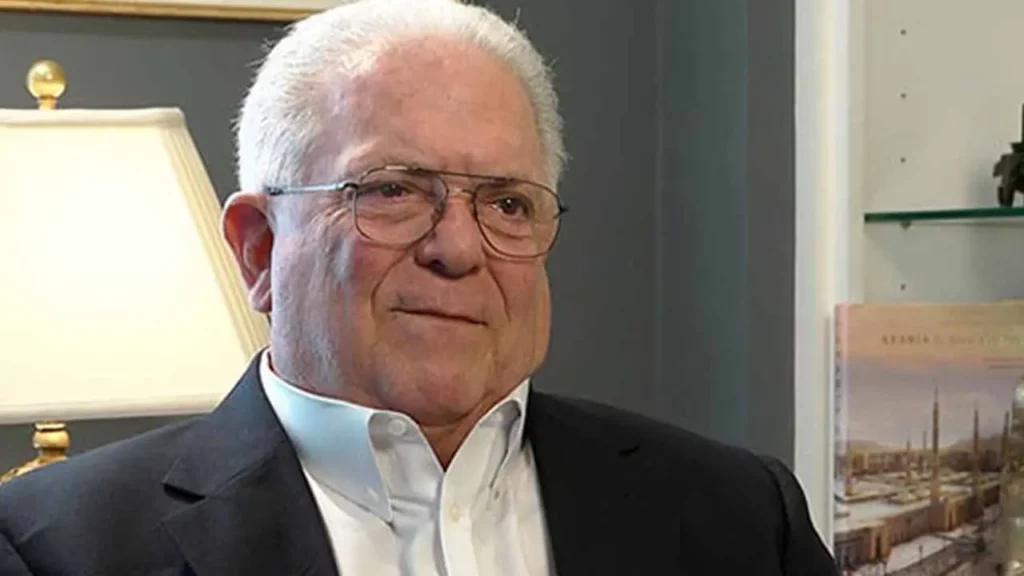
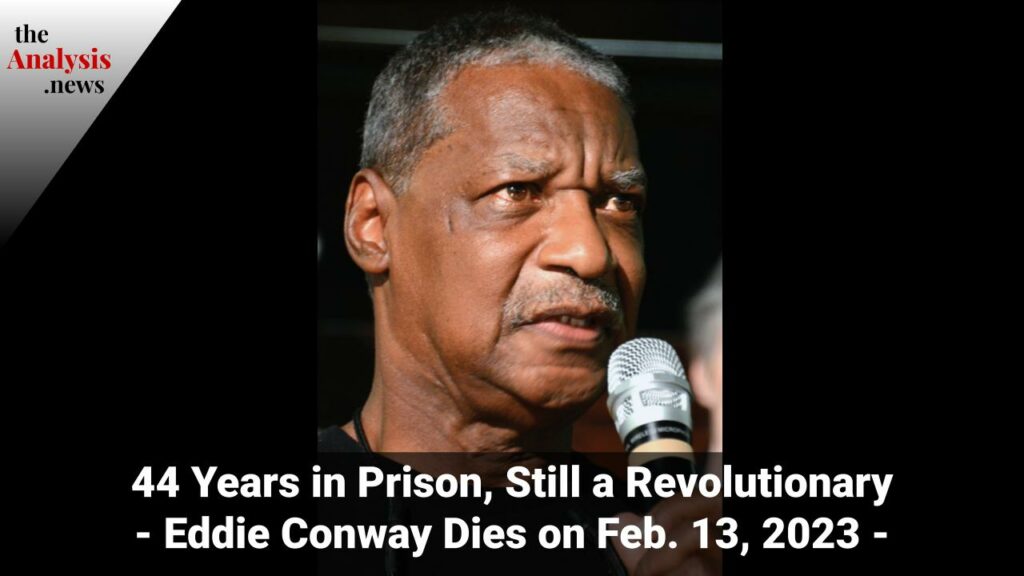
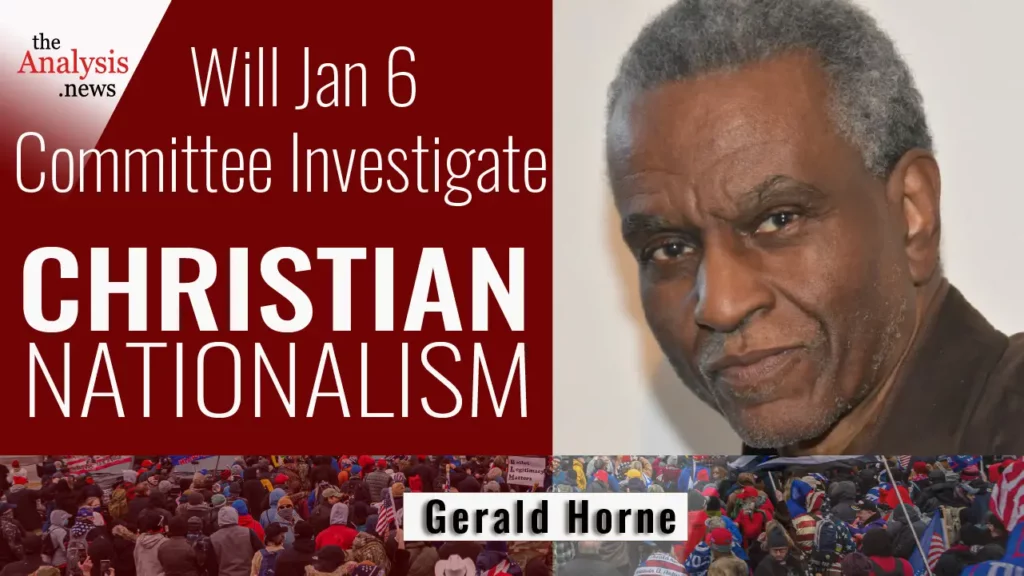

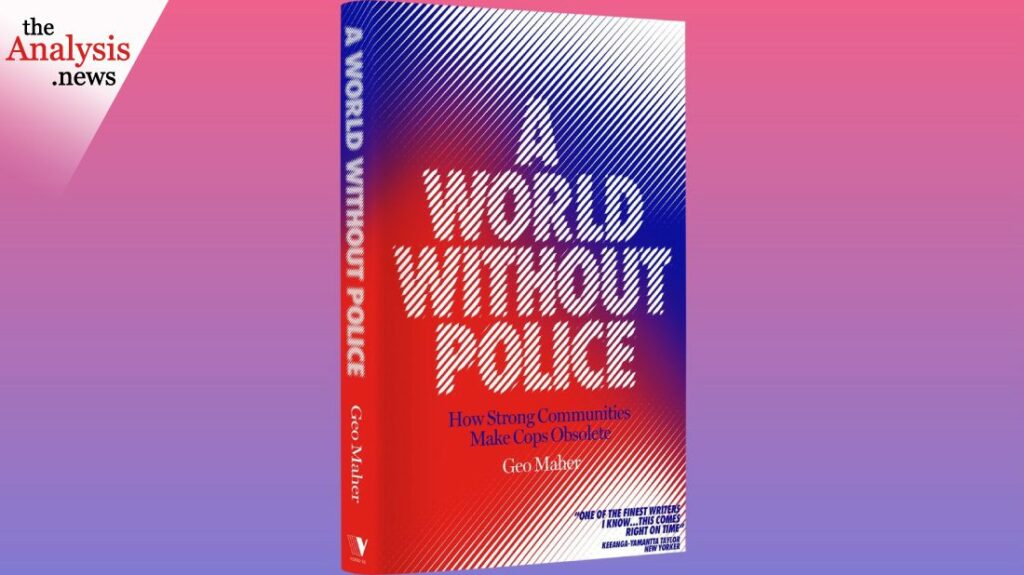


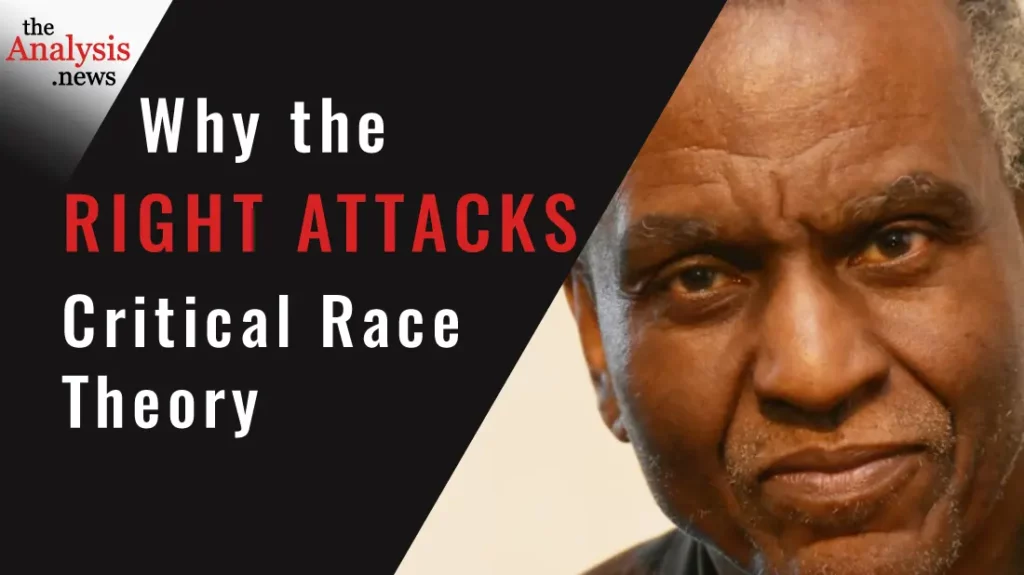
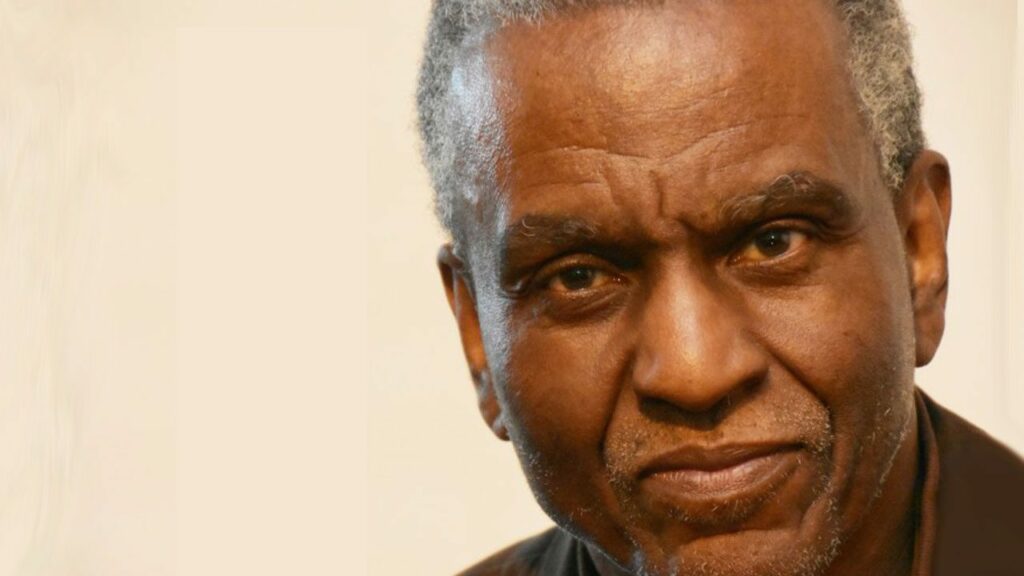



How much to blame is the US CIA for the horrendous failures of US foreign policy? Did the CIA try to warn our recent Presidents against the aggressive adventures assumed since the turn of the 21st century? Did they encourage GWB, BHO, DT, JB to invade, to overturn, to meddle and to sanction? How much do we know, and how much shall we ever know?
Great Interview. Keep up the good work.